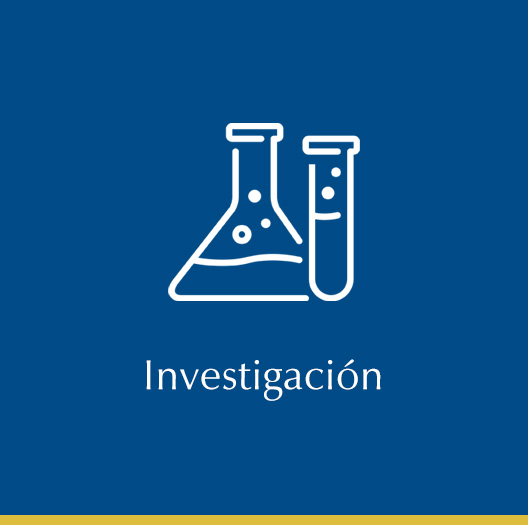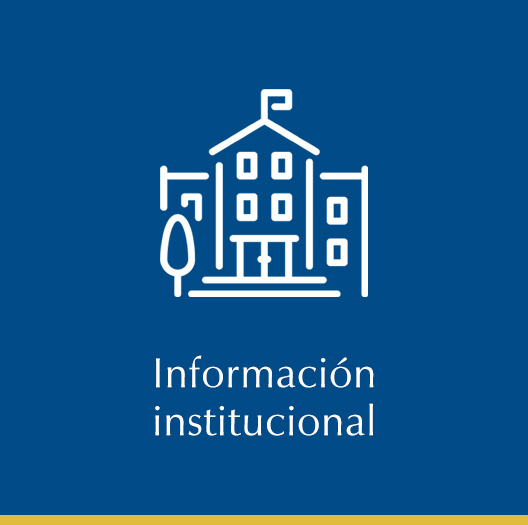Repositorio Institucional
Universidad Santiago de Cali


Documentos Autoarchivo USC
Recent Submissions
Formulaciones para formas farmacéuticas de liberación modificada de Nifedipino: Revisión sistemática
(Universidad Santiago de Cali, 2025-11-28) Diaz Urcué, Yoly Stefhania
Este trabajo se centró en el problema de la baja biodisponibilidad del Nifedipino, debido a su escasa solubilidad acuosa y que tiene un metabolismo hepático de primer paso. El objetivo fue analizar las formulaciones de Nifedipino en diversos artículos, evaluando el impacto de los excipientes en las formulaciones de liberación controlada, considerando su impacto en la seguridad y la eficacia del fármaco, con el propósito de identificar las opciones de formulación que ofrezcan los mejores resultados. La metodología fue una revisión de literatura en estudios experimentales que analizaron formulaciones de liberación modificada de Nifedipino, en artículos publicados entre 2017 y 2024 en las bases de datos PubMed, ScienceDirect, Springer Link, Scopus, Redalyc, SciELO, Biomed Central, ACS Publications, SAGE Journals, Taylor & Francis. Los hallazgos indicaron que las formulaciones fundamentadas en polímeros, como el HPMC, alcanzaron controles de liberación sostenida con perfiles cinéticos de orden cero y estabilidad a largo plazo, mejorando la biodisponibilidad y reduciendo los efectos no deseados. Además, se demostró que sistemas innovadores, tales como microagujas disolventes y sistemas sensibles al pH, pudieron prevenir el metabolismo hepático y adaptarse a condiciones fisiológicas particulares, lo que posibilitó una liberación del medicamento más eficaz y personalizada. En conclusión, las formulaciones de liberación modificada, en particular las matrices poliméricas y los sistemas pulsátiles, constituyeron soluciones eficaces para sobrepasar las restricciones del Nifedipino, estas formulaciones permitieron el uso futuro de aplicaciones personalizadas que optimicen la terapia de trastornos cardiovasculares, con posibles ventajas en seguridad, efectividad y cumplimiento.
Actualización en los avances en el manejo de la diabetes mellitus en perros: Evaluación de la terapia con insulina una vez al día (SID) – Seguridad, eficacia y calidad de vida. Revisión bibliográfica
(Universidad Santiago de Cali, 2025-12-04) Guevara Delgado, María Camila
El médico inglés, Thomas Willis, describió por primera vez hace más de un siglo la diabetes mellitus (DM). Actualmente se clasifica como una enfermedad endocrina crónica, semejante a los humanos; esta enfermedad es caracterizada por la pérdida en masa de células ubicadas en los islotes pancreáticos, dando como resultados una producción o acción de insulina inadecuada (hipoglucemia, hiperglucemia o ambas). A raíz de lo anterior mencionado se presentan signos característicos cómo: poliuria, polidipsia, polifagia y pérdida repentina de peso. Como tratamiento médico se propone dos formas de abastecer la insulina al paciente, mediante una única dosis diaria (SID) o dos veces diarias (BID). (Canine Diabetes Mellitus - WSAVA2011 - VIN, s. f.). Siendo material de estudio la enfermedad crónica en los perros, se han presentado investigaciones desde el siglo pasado, sin embargo, en la actualidad a nivel nacional no se han demostrado los suficientes casos y estudios de soporte médico. Basado en lo anterior, se procede a inferir que se utilizarán artículos extranjeros y de mayor rango de tiempo superior a los 10 años de antigüedad, dada la complejidad de los estudios realizados sobre la diabetes mellitus.
Caracterización epidemiológica de caninos y felinos infectados con nematodos:
un análisis retrospectivo a partir de datos de una clínica veterinaria del municipio de Palmira-Valle
(Universidad Santiago de Cali, 2025-12-10) Hurtado Serna, Brahian Alexis
Las infecciones por parásitos intestinales en animales de compañía representan una de las principales causas de enfermedad gastrointestinal en la población canina y felina, con implicaciones directas en la salud pública. Estas parasitosis, de carácter zoonótico, afectan tanto a los animales domésticos como a sus propietarios, debido a la estrecha convivencia entre ambas especies. En este contexto, el presente estudio tuvo como objetivo caracterizar el perfil epidemiológico de caninos y felinos domésticos infectados con nematodos intestinales, atendidos en la clínica veterinaria El Arca del municipio de Palmira (Valle del Cauca) durante el año 2024, e identificar los factores epidemiológicos asociados a su presentación. Se desarrolló una investigación con enfoque cuantitativo, diseño observacional y descriptivo, a partir de un análisis retrospectivo de historias clínicas registradas en el software OkVet. Se incluyeron historias clínicas de perros y gatos con resultados de exámenes coproscópicos, datos demográficos y antecedentes clínicos completos. Las variables analizadas incluyeron especie, raza, edad, sexo, estado reproductivo y resultado coprológico. Los datos se procesaron mediante frecuencias absolutas y relativas, aplicándose la prueba estadística de Chi-cuadrado con un nivel de significancia del 5 % (p < 0,05) a través del software Jamovi. Durante el periodo de estudio se registraron 706 pacientes, de los cuales 130 historias clínicas cumplieron con los criterios de inclusión. De las muestras fecales válidas (n = 89), se identificó una frecuencia del 38,6 % de Ancylostoma sp. en perros y del 10,2% de Cystoisospora sp. en gatos. En el 46,6 % de los animales no se evidenció infección parasitaria. Estos hallazgos indicaron que los caninos fueron más susceptibles a infecciones por nematodos intestinales, mientras que los felinos presentaron mayor frecuencia de protozoos. Los resultados confirmaron la circulación activa de Ancylostoma sp. en la población canina de Palmira y evidenciaron la necesidad de fortalecer los programas de diagnóstico coprológico, educación sanitaria y desparasitación preventiva en la comunidad. Asimismo, la proporción de registros clínicos sin resultados coproscópicos resaltó la importancia de mejorar los procesos de registro y seguimiento clínico en las instituciones veterinarias. En conclusión, este estudio aportó información epidemiológica relevante sobre las parasitosis gastrointestinales en animales de compañía del municipio de Palmira, constituyendo una base de referencia para futuras investigaciones y acciones de control.
Métodos de fabricación de formas farmacéuticas sólidas para liberación modificada de clorhidrato de Diltiazem: Revisión sistemática
(Universidad Santiago De Cali, 2025-12-04) Troches Mafla, Estefanía
El diltiazem es un fármaco ampliamente utilizado en el tratamiento de la hipertensión arterial y la angina de pecho. Generalmente se formula en formas farmacéuticas sólidas y, en algunos casos, en combinación con otros principios activos como la metoclopramida. No obstante, presenta limitaciones farmacocinéticas relevantes, en particular una vida media corta (3–4.5 h), lo que obliga a administraciones frecuentes para mantener concentraciones plasmáticas terapéuticas. Esto ha impulsado el desarrollo de formulaciones de liberación modificada como una estrategia clave para optimizar su perfil terapéutico, permitiendo la reducción de la frecuencia de dosificación, minimizando las fluctuaciones en los niveles plasmáticos, disminuyendo los efectos adversos y mejorando la adherencia del paciente. En este trabajo se revisaron investigaciones recientes sobre formulaciones de liberación modificada de diltiazem clorhidrato y sus métodos de fabricación. Se identificaron diversas presentaciones sólidas, entre ellas microesferas, nanotubos, tabletas de triple capa, matrices mucoadhesivas, cápsulas, micropartículas y tabletas osmóticas. Asimismo, se describieron los métodos generales de fabricación destacando la compresión directa, granulación húmeda, liofilización, microencapsulación, emulsificación, gelificación, aspersión y granulación por fusión. Los avances en estas estrategias han demostrado un progreso significativo en la optimización de la liberación del diltiazem clorhidrato, favoreciendo su absorción y biodisponibilidad, y ofreciendo alternativas que podrían mejorar la eficacia terapéutica y la adherencia al tratamiento en la práctica clínica.
Contaminación con Fumonisinas y Aflatoxinas en maíz para porcicultura: implicaciones en salud pública
(Universidad Santiago de Cali, 2025-11-04) Rassa Pinto, Gabriela
Mycotoxins, specifically fumonisins and aflatoxins, have represented a significant problem for swine production and public health, as they are frequently found in corn and its derivatives. The purpose of this study was to critically analyze the most recent scientific literature related to the proliferation of mycotoxins in corn, their effects on swine health and productivity, the risks they pose to human consumers, and proposed mitigation strategies. To this end, a systematic review was conducted of twenty-five articles published between 2019 and 2025 in academic databases, which included both experimental and observational studies. The information obtained was organized into a matrix and subsequently classified into different thematic areas. The findings showed that the combination of high humidity and high temperatures, coupled with poor post-harvest handling, favors the proliferation of mycotoxins in grains. Furthermore, in pigs, prolonged exposure to these substances caused immunosuppression, hepatotoxicity, reproductive disorders, and a decrease in production indicators, even when the doses were subclinical. Regarding human health, bioaccumulation was identified in frequently consumed tissues, and potential carcinogenic and mutagenic effects were noted, although epidemiological evidence remains limited. Finally, mitigation measures highlighted included the use of resistant varieties, the use of adsorbents in the diet, the proper application of agricultural practices, and the development of rapid detection technologies, the effectiveness of which still needs validation under field conditions. Thus, mycotoxins constitute a multidimensional problem that affects animal productivity, food safety, and public health. Therefore, it is necessary to strengthen applied research and consolidate integrated prevention and surveillance policies.





